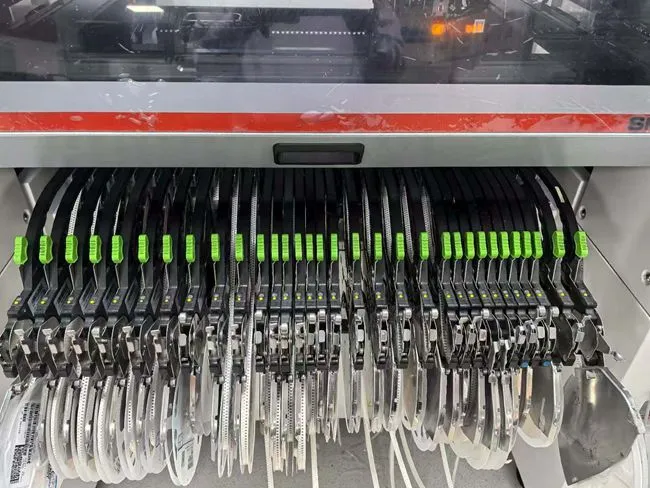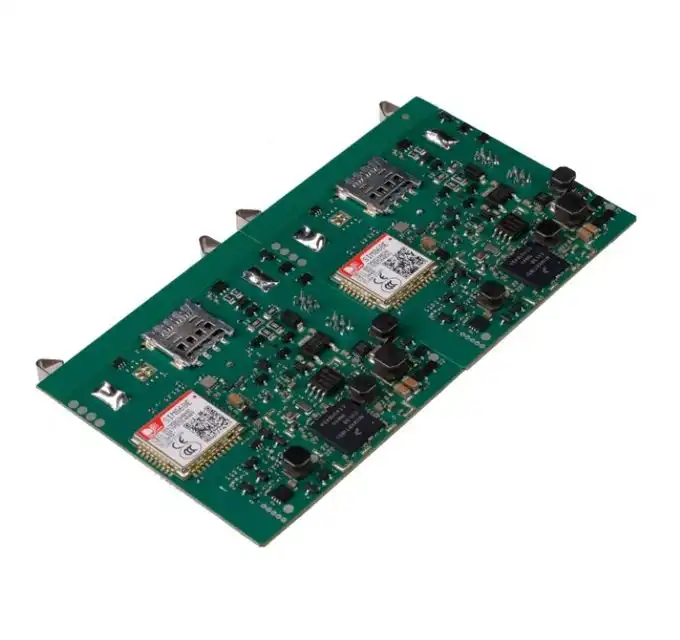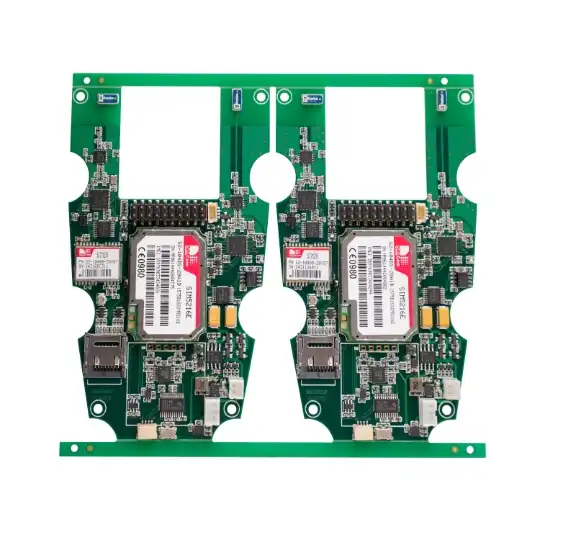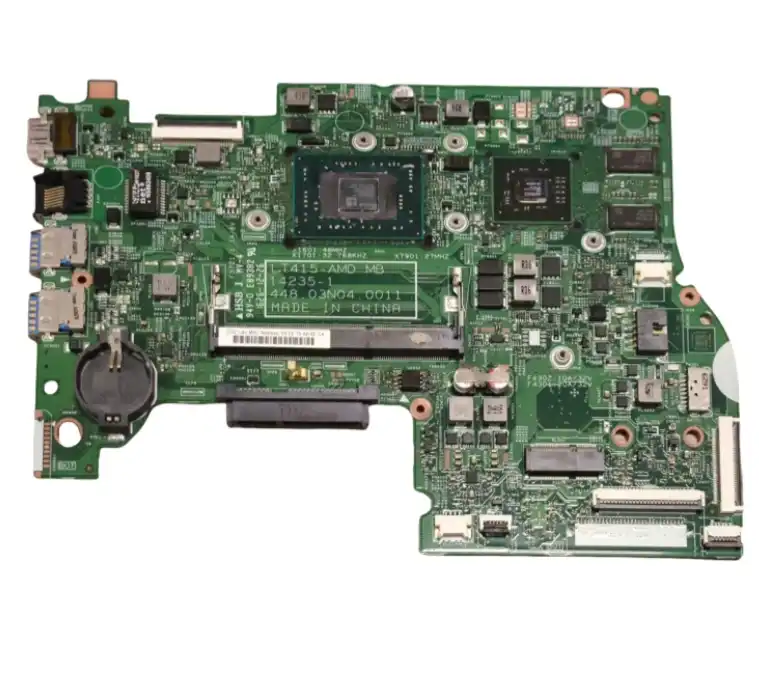The Advantages of In-House PCB Manufacturing
In-house PCB manufacturing provides several benefits for companies with specific needs and resources. One of the primary advantages is the level of control it offers over the entire production process. This control extends from design to assembly, allowing for rapid prototyping and immediate adjustments when necessary. Companies can maintain strict quality standards and protect their intellectual property more effectively when keeping PCB manufacturing in-house.
Rapid Prototyping and Iteration
With in-house capabilities, engineers can quickly produce prototype boards, test them, and make iterative improvements. This agility is particularly valuable for companies developing cutting-edge technologies or working on time-sensitive projects. The ability to produce small batches of multilayer PCBs with advanced features like blind vias or high-density interconnects (HDI) without external dependencies can significantly accelerate product development cycles.
Customization and Flexibility
In-house PCB manufacturing allows for greater customization and flexibility in board design and production. Companies can easily accommodate last-minute changes or produce specialized boards that might be challenging to outsource. This flexibility extends to the ability to handle complex assembly requirements, including SMT (Surface Mount Technology) and through-hole hybrid assemblies, ensuring that even the most intricate designs can be realized without compromise.
Enhanced Quality Control
By managing the entire PCB manufacturing process internally, companies can implement rigorous quality control measures at every stage. This includes advanced inspection techniques such as Automated Optical Inspection (AOI) and X-ray analysis, which are crucial for detecting defects in high-reliability applications. For industries like automotive or aerospace, where PCB reliability is paramount, in-house manufacturing can provide the necessary level of oversight and testing to ensure compliance with stringent quality standards.

The Benefits of Outsourcing PCB Manufacturing
Outsourcing PCB manufacturing to specialized providers offers several advantages, particularly for companies looking to optimize their resources and focus on core competencies. This approach can lead to significant cost savings, access to advanced technologies, and improved scalability.
Cost-Effectiveness and Economies of Scale
PCB manufacturing companies specialize in producing boards at scale, which often translates to lower costs per unit for their clients. These manufacturers invest in state-of-the-art equipment and processes, spreading the cost across multiple customers. This economy of scale is particularly beneficial for companies requiring high-volume production of multilayer or HDI PCBs, where the initial investment in equipment and expertise can be prohibitive for in-house manufacturing.
Access to Advanced Technologies and Expertise
Outsourcing partners typically offer a wide range of PCB manufacturing capabilities, from simple double-sided boards to complex multilayer designs with advanced features like microvias and embedded components. They stay at the forefront of technology, investing in the latest equipment for precision assembly, testing, and quality assurance. This means companies can access cutting-edge PCB manufacturing technologies without the need for continuous capital investment.
Focus on Core Competencies
By outsourcing PCB manufacturing, companies can concentrate on their core strengths, such as product design, marketing, and customer service. This focus can lead to improved overall efficiency and competitiveness. Additionally, outsourcing partners often provide value-added services like component procurement, SMT assembly, and comprehensive testing, offering a one-stop solution for PCB production needs.
Considerations for Choosing Between In-House and Outsourced PCB Manufacturing
The decision between in-house PCB manufacturing and outsourcing is not always straightforward and depends on various factors. Companies must carefully evaluate their specific needs, resources, and long-term strategies to make the best choice.
Production Volume and Complexity
Production volume is a critical factor in this decision. For low to medium volume production, especially of complex boards like high-speed HDI PCBs or flexible/rigid-flex designs, in-house manufacturing might be more cost-effective and provide better control. However, for high-volume production or when dealing with a wide variety of board types, outsourcing to a specialized manufacturer with extensive capabilities in multilayer PCB manufacturing and assembly might be more efficient.
Technical Requirements and Quality Standards
The technical complexity of the PCBs and the required quality standards also play a significant role. For highly specialized or proprietary designs, particularly those requiring stringent quality control measures or specific certifications (like automotive or industrial-grade PCBs), in-house manufacturing might be preferable. Conversely, if a company needs access to a broad range of technologies or materials, such as metal-core PCBs for high-power applications, outsourcing to a partner with diverse capabilities could be advantageous.
Time-to-Market and Flexibility
Consider the importance of rapid prototyping and time-to-market in your industry. In-house manufacturing can offer quicker turnaround times for prototypes and small batches, which is crucial in fast-paced markets. However, outsourcing partners specializing in quick-turn PCB manufacturing and assembly services can also offer competitive lead times, especially for more standard designs. The key is to evaluate the flexibility and responsiveness of potential outsourcing partners against your in-house capabilities.
Long-Term Strategy and Resource Allocation
Finally, consider your company's long-term strategy and resource allocation. In-house PCB manufacturing requires significant upfront investment in equipment, training, and maintaining a skilled workforce. It also demands ongoing investment to keep pace with technological advancements. Outsourcing, while potentially more cost-effective in the short term, means relying on external partners for a critical component of your product development and production process. Evaluate how each option aligns with your company's core competencies and growth strategy.
Conclusion
The choice between in-house PCB manufacturing and outsourcing is a complex decision that impacts various aspects of a company's operations and product development. While in-house manufacturing offers unparalleled control and flexibility, outsourcing can provide cost-effectiveness and access to advanced technologies without significant capital investment. The optimal solution often lies in a hybrid approach, where companies maintain some in-house capabilities for prototyping and critical components while leveraging outsourcing partners for volume production and specialized technologies.
By carefully evaluating factors such as production volume, technical requirements, time-to-market needs, and long-term strategy, companies can make informed decisions that best support their goals and competitive position in the market. Whether choosing a PCB manufacturing supplier or developing in-house capabilities, the focus should remain on achieving the highest quality, reliability, and efficiency in PCB production to meet the demanding needs of today's electronic products.
FAQ
What types of PCBs can Ring PCB manufacture?
Ring PCB specializes in manufacturing a wide range of PCBs, including multilayer, high-density interconnect (HDI), flexible, and rigid-flex PCBs. We offer advanced capabilities such as blind and buried vias, and can handle complex designs for various industries.
Does Ring PCB provide assembly services?
Yes, we offer comprehensive PCB assembly services, including SMT and through-hole assembly, as well as hybrid assemblies. Our one-stop service covers everything from component procurement to final testing.
What quality control measures does Ring PCB employ?
We implement strict quality control measures, including AOI, X-ray inspection, and ICT support. Our defect rate is less than 0.2%, significantly lower than the industry average.
Quality Assurance and Certifications | Ring PCB
At Ring PCB, we pride ourselves on our commitment to quality and reliability in PCB manufacturing. Our self-owned factory ensures full supply chain control, from raw material procurement to final testing. We implement triple quality assurance measures, including AOI, impedance testing, and thermal cycling. Our facilities are certified to ISO9001, IATF16949, and RoHS standards, guaranteeing top-tier quality for all our clients. For inquiries about our PCB manufacturing and assembly services, please contact us at [email protected].
References
1. Johnson, M. (2022). "The Evolution of PCB Manufacturing: In-House vs. Outsourcing Trends." Journal of Electronics Manufacturing, 15(3), 87-102.
2. Smith, A. & Brown, R. (2023). "Cost-Benefit Analysis of PCB Production Strategies in Modern Electronics." International Journal of Industrial Engineering, 28(2), 210-225.
3. Lee, S. et al. (2021). "Quality Control Challenges in PCB Manufacturing: A Comparative Study." IEEE Transactions on Electronics Packaging Manufacturing, 44(1), 55-70.
4. Garcia, D. (2023). "Supply Chain Resilience in PCB Manufacturing: In-House and Outsourcing Models." Supply Chain Management Review, 17(4), 32-48.
5. Thompson, K. & Wilson, L. (2022). "Technology Adoption in PCB Fabrication: Implications for Manufacturing Strategy." Journal of Technology Management, 33(2), 180-195.






